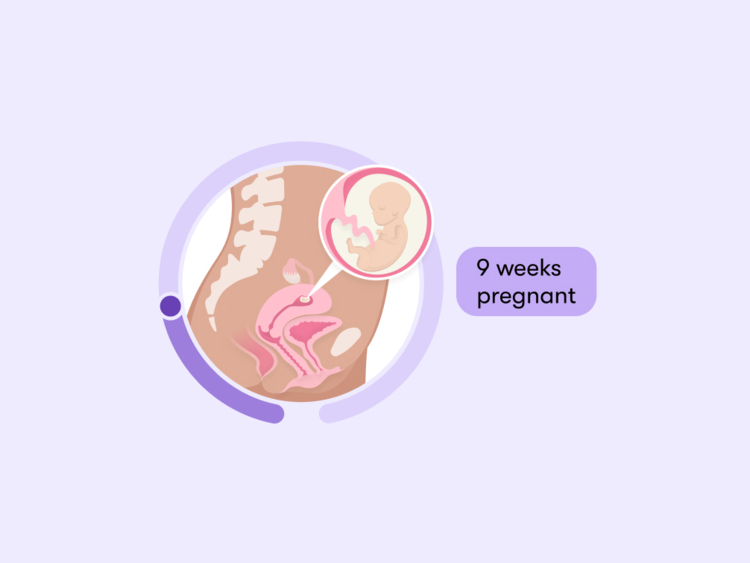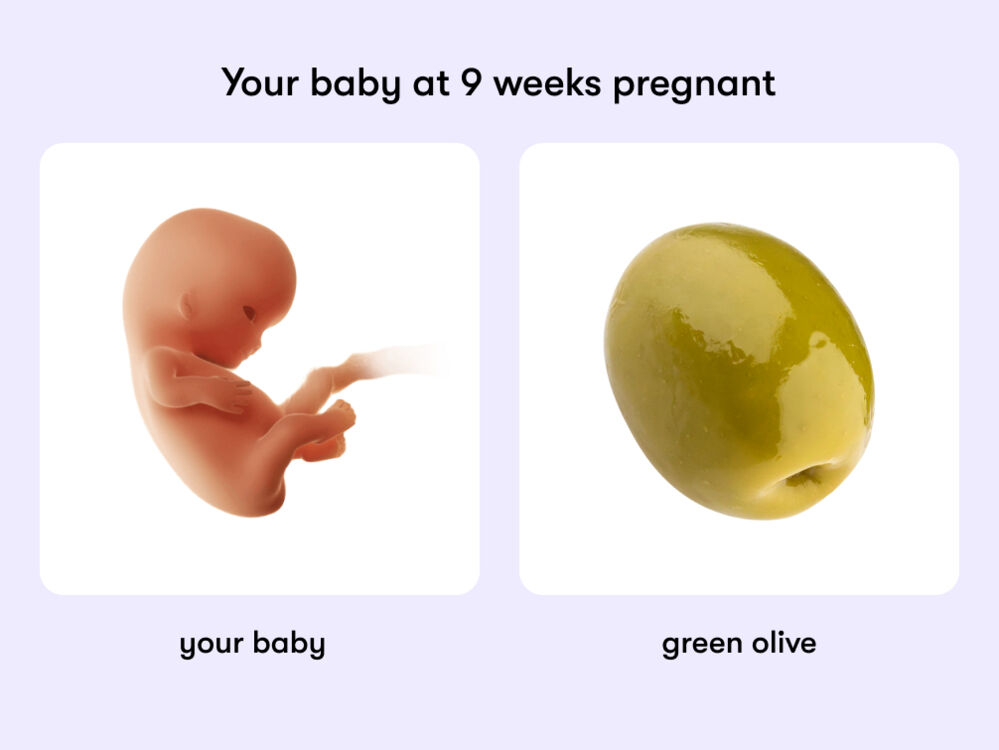You’re 9 weeks into your pregnancy journey, which is quite the milestone. This week your baby officially transitions from being an embryo to a fetus, which simply means that it enters a different stage of development. It’s during this stage, also known as the fetal stage, that your baby will do most of their growing and developing. You might also be finding your pregnancy symptoms tough to handle right around now, but hang in there — we promise they won’t last forever.
Want to learn more? Let’s find out what your body and baby are up to right now, with the help of a Flo expert.
Your baby at 9 weeks pregnant
Their tongue is starting to develop
Yep, and the tongue even has miniature taste buds. Your baby will be able to open their mouth by around 11 weeks.
Hands and feet are developing
Amazing, isn’t it? Your baby even has ridges that mark where their fingers and toes will be. But they haven’t separated out just yet — this starts to happen at around 11 weeks. The thought of your baby having webbed feet and hands might be a bit strange, but rest assured that this is totally normal.
How big is a baby at 9 weeks?
Length (crown to rump): Around 2.3 cm or 0.9 in.
Weight: Too small to calculate accurately
Size: Equivalent to a green olive
All measurements are approximate and vary within the normal range.



